English has an interesting history of incorporating words from other languages. Just last week, the words “arre yaar” and “churidar” were added to the Oxford English Dictionary. Here are a few other interesting words that were adopted into English during the Colonial period. While there are many, many more words that can be added to this list, these are just some that we find rather interesting.
1. Bangle
This word was incorporated in English in the late 18th century, from Hindi.
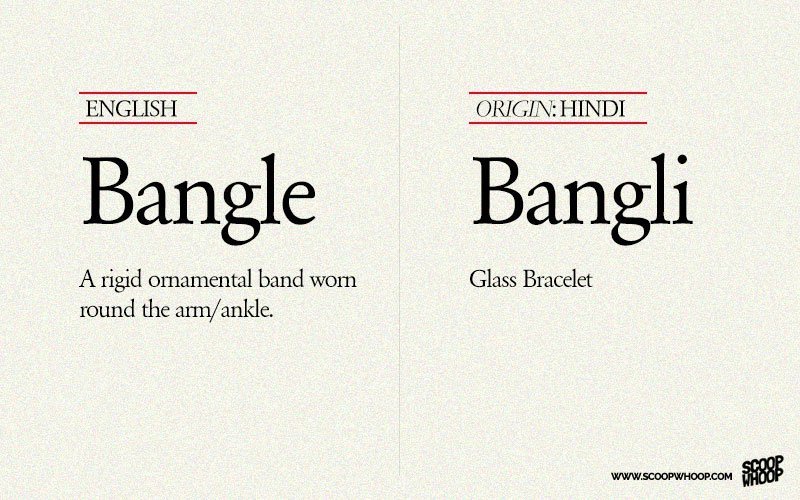
2. Cot
This word was originally incorporated from the Hindi word “khaat”. While the word is not heard as often in Hindi anymore, it continues to be used in languages like Bengali.
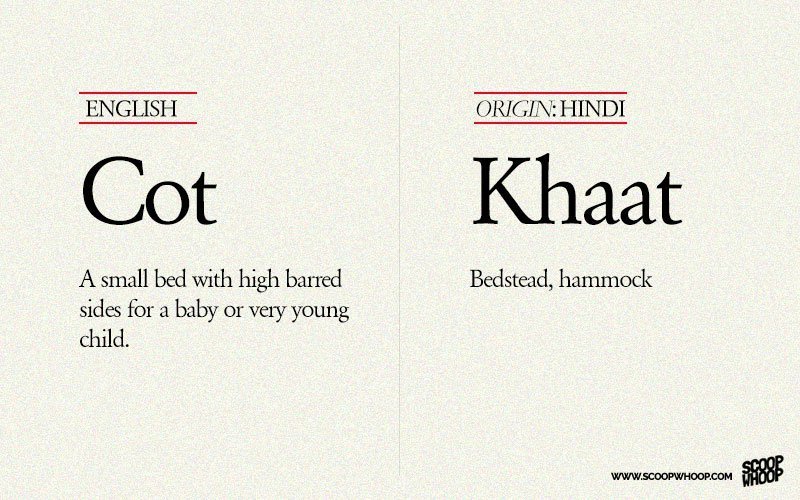
3. Khaaki
The Urdu/Persian word khaaki was actually a derivative of the word khaak, meaning dust.
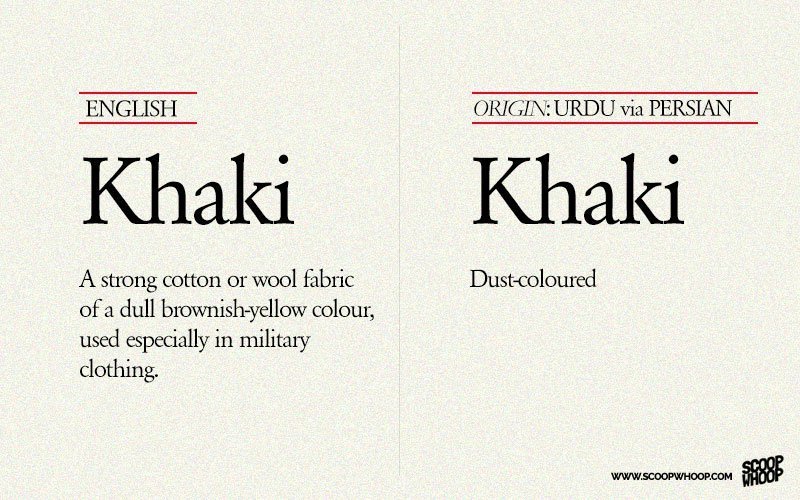
4. Chit
The word “chit” was a late 18th century, Anglo-Indian addition to the English language.
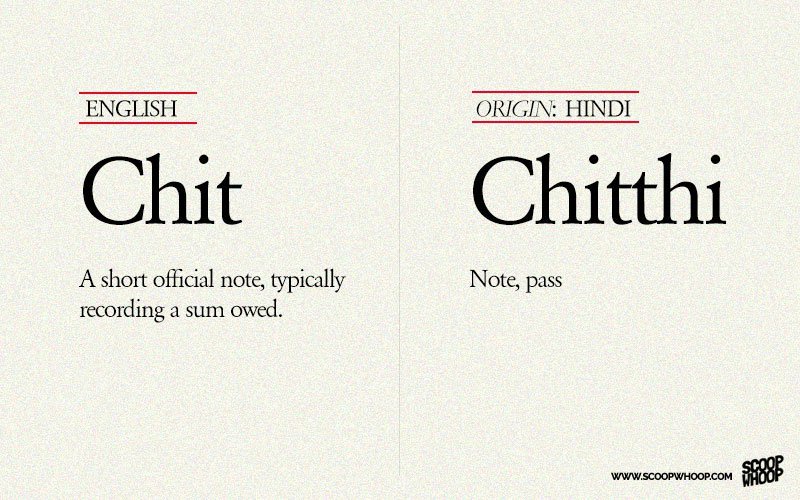
5. Chintz
An early 17th century addition as “chints”, plural of “chint” , denoting a stained or painted calico cloth imported from India.
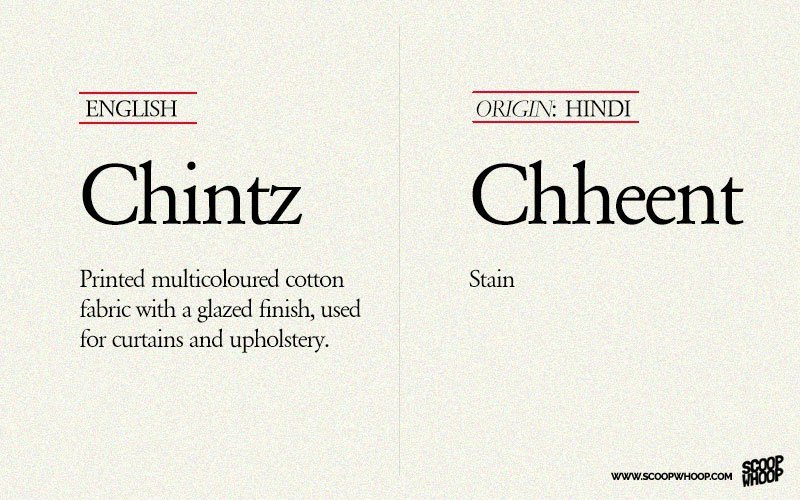
6. Chutney
Interestingly, this 19th century addition to English seems to have a completely different recipe and taste from the original!
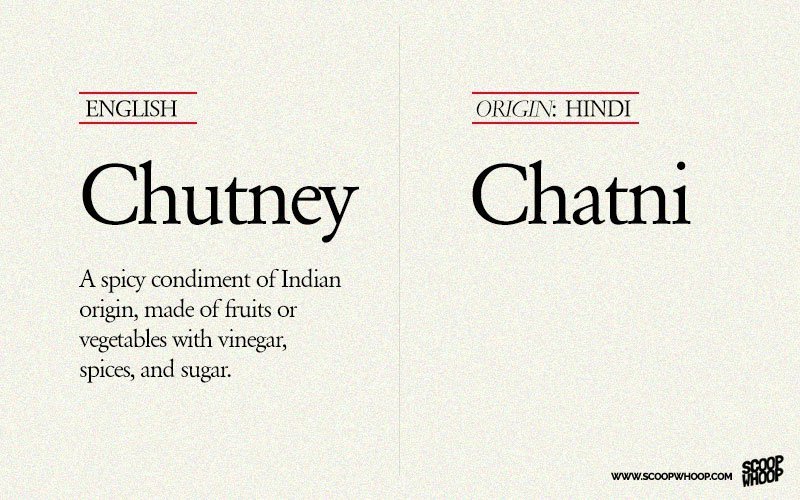
7. Cheroot
In the late 17th century, the word was incorporated into French as “cheroute” and eventually made its way to English as well.
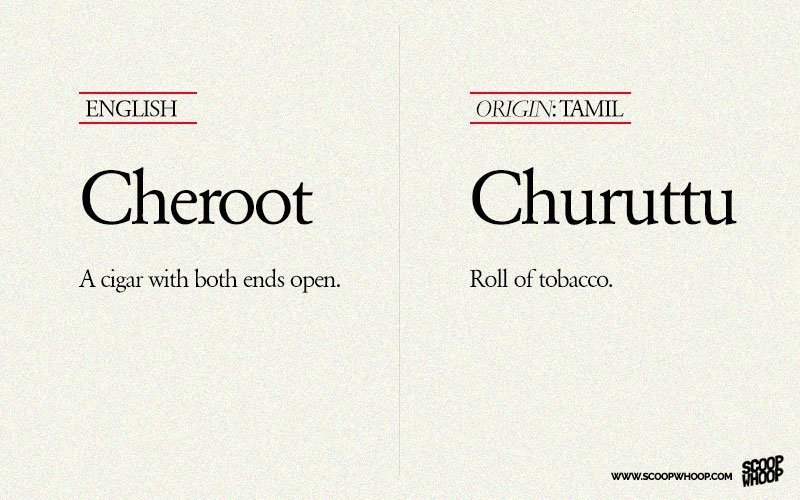
8. Bungalow
This word has a rather interesting history. As the prototype for a particular style of cottages built for early European settlers in Bengal travelled across the country, it came to be known as the place of its origin – Bangla/Bengal.
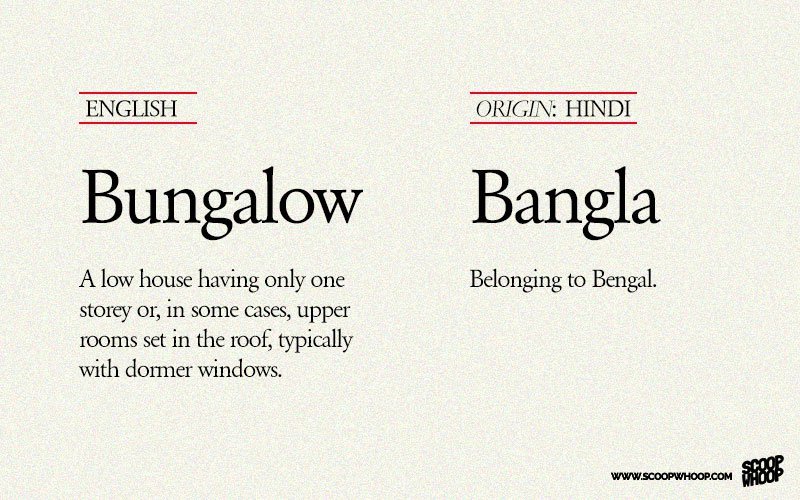
9. Avatar
For most of us, this word instantly brings up an image from James Cameron’s movie. What a small world, I say!
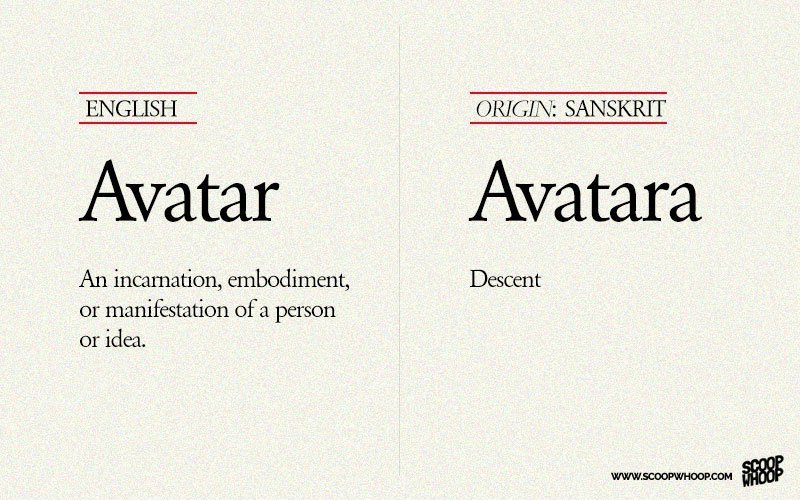
10. Catamaran
Another word of Tamil origin, it made it’s way to English in the early 17th century.
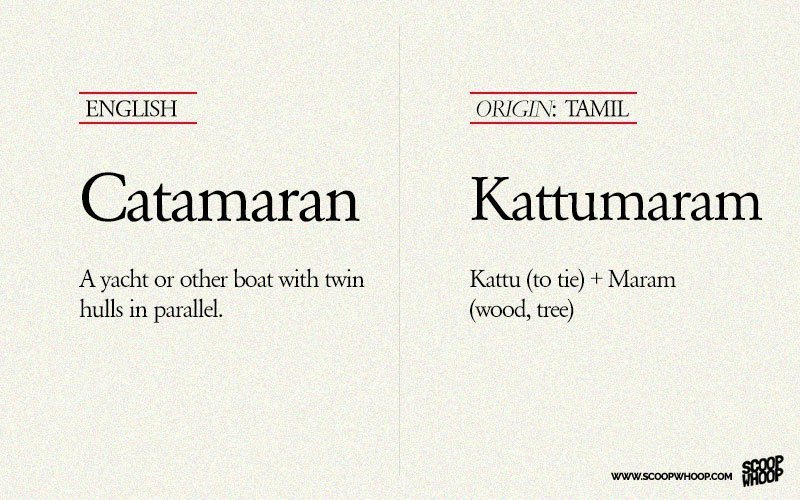
11. Blighty
The word was first used by soldiers in the Indian army. An Anglo-Indian alteration of Urdu bilāyatī, wilāyatī ‘foreign, European’, from Arabic wilāyat, wilāya ‘dominion, district’ eventually made it’s way into English – coming to have positive connotations.
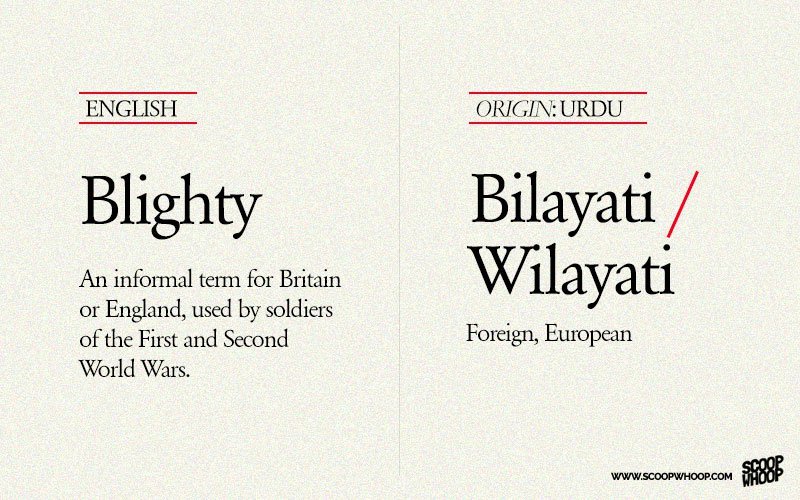
12. Jungle
This one is hardly a surprise. But just think about how English would have sounded without it. “Tarzan, king of the forest”?!
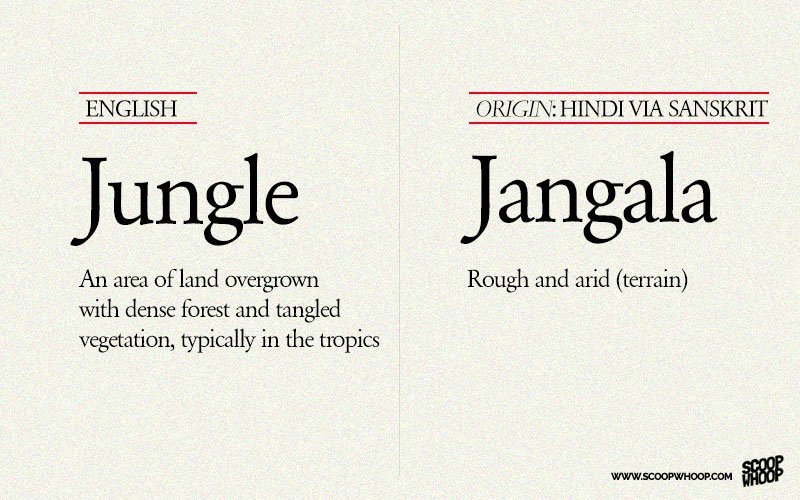
13. Loot
While we continue to use the word as a verb in Hindi, the British made it into a noun used to denote stolen property.
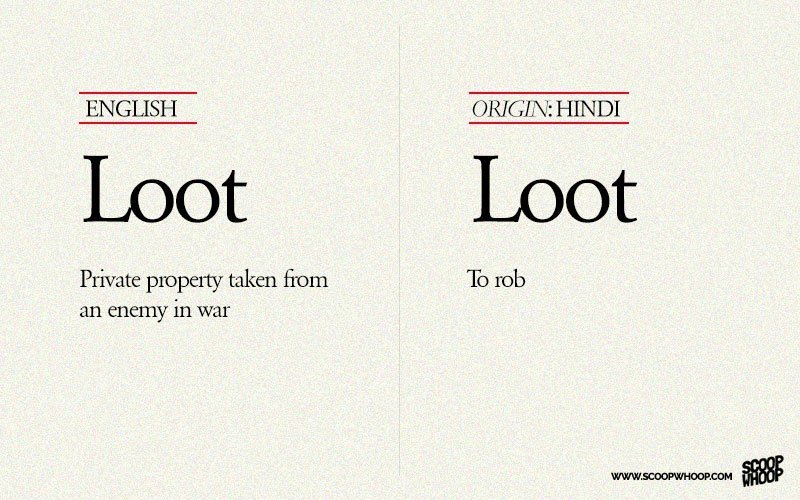
14. Pariah
Ever heard of the phrase “social pariah”? It comes from the name of a lower caste in Tamil Nadu. “Paraiyan” was used to denote a member of an indigenous people of southern India originally functioning as ceremonial drummers but later having a low caste.
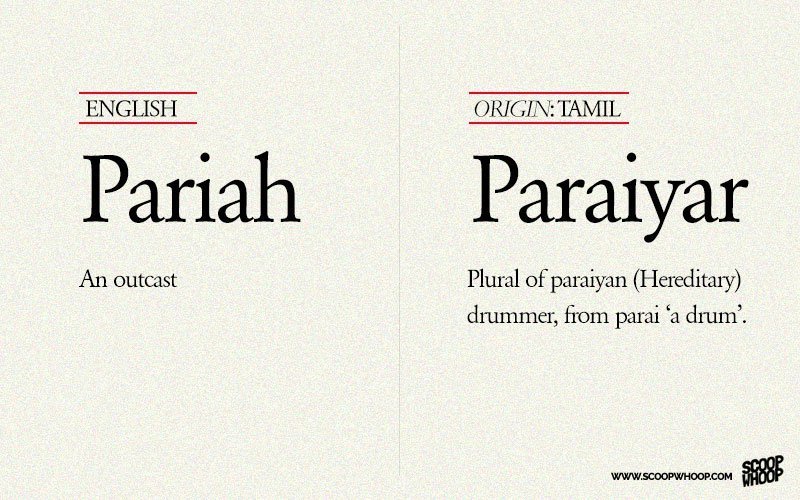
15. Pundit
This word was taken from Sanskrit pretty much as it is. While we use it across languages as an adjective for “learned”; in English, it means “an expert”. Close enough!
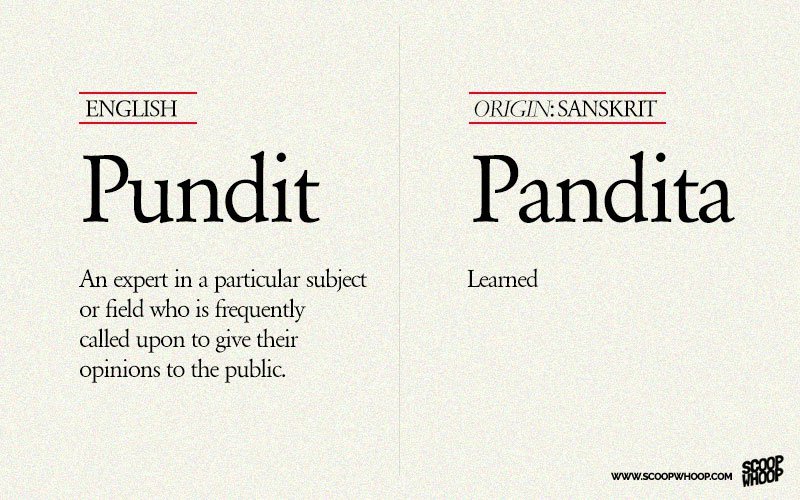
16. Shawl
Interestingly, both “shawl” and “shaal” continue to be used by us across languages and locales.
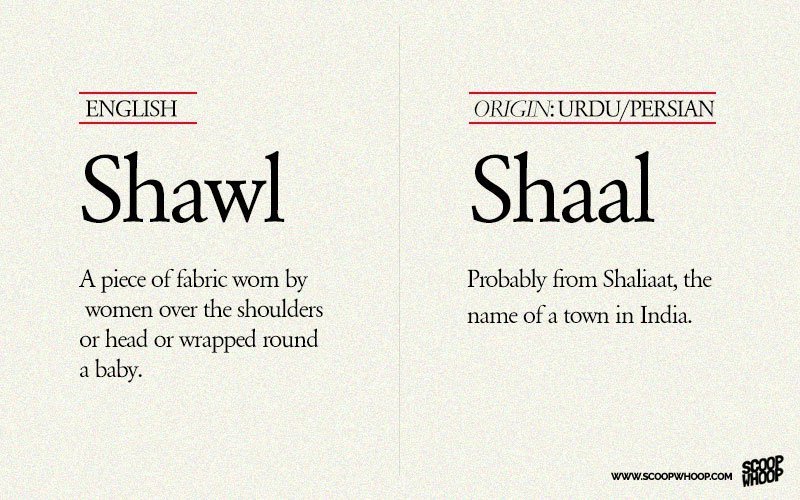
17. Teak
As materials from India came under the control of our colonizers, their names travelled right with them into their country and language!
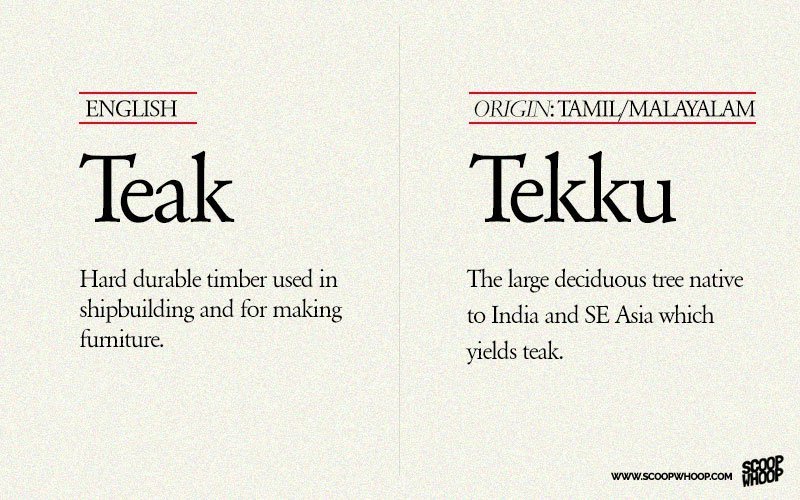
18. Veranda
Not sure about other languages, but we do continue to use this word in Bengali even now.
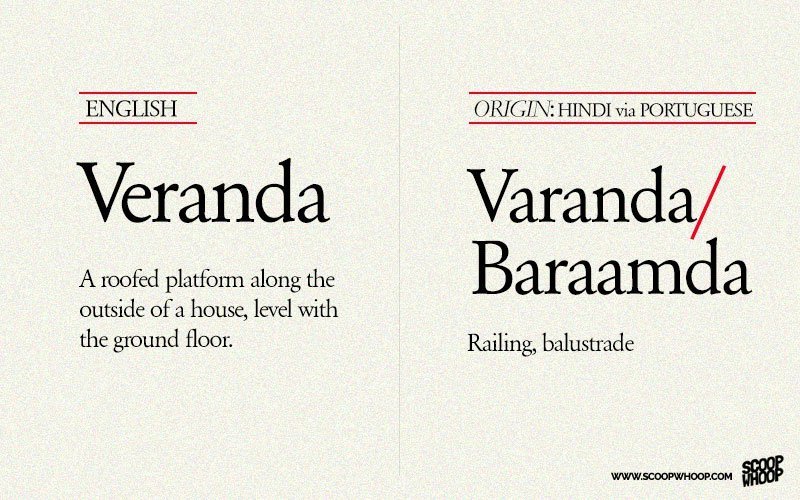
19. Cashmere
A material obtained from Kashmir goats, came to be associated with the name of the place itself.
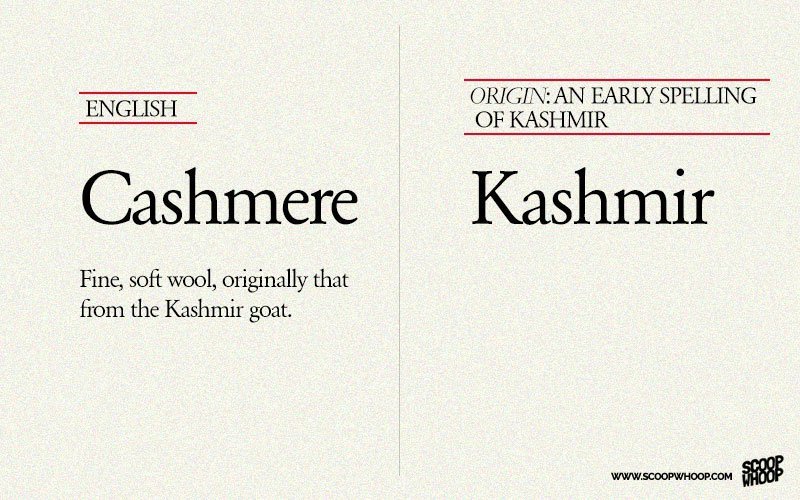
20. Shampoo
Yes, really! This word is actually a derivative of the Hindi word “chaanpo!” used as an instruction to press/massage. While I’ve pretty much never heard the word being used in Hindi, we do use “chaap” to mean “pressure” in Bengali, even now.
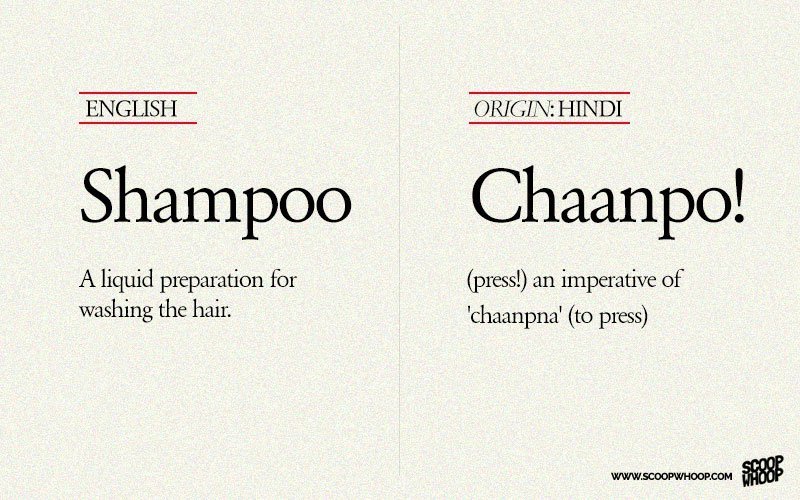
21. Dungarees
Every 90s kid remembers them from Kuch Kuch Hota Hai. This garment was actually named after the district Dungri. While the clothes came to be called “Dungarees”; the district is now known as Dongri .
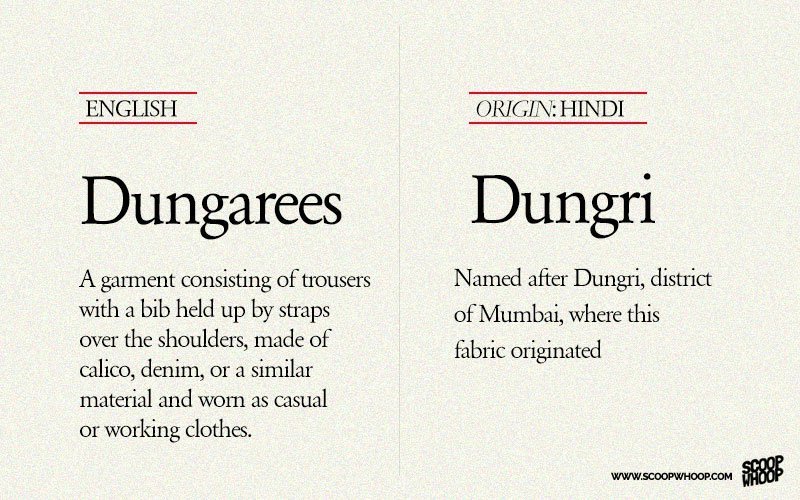
Design by Aakansha Pushp

















